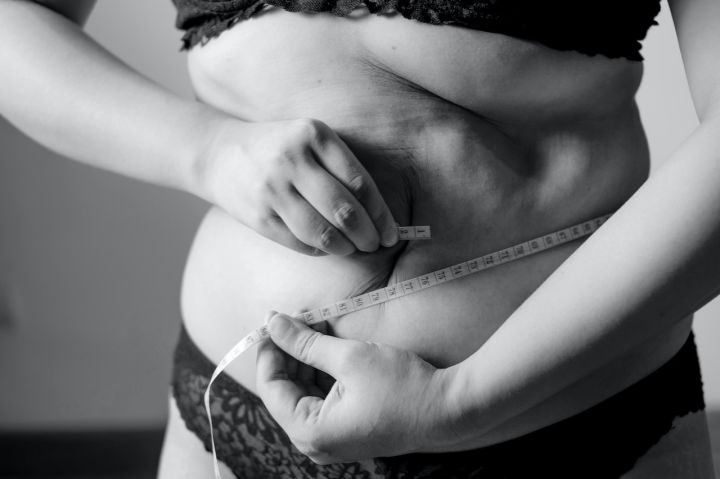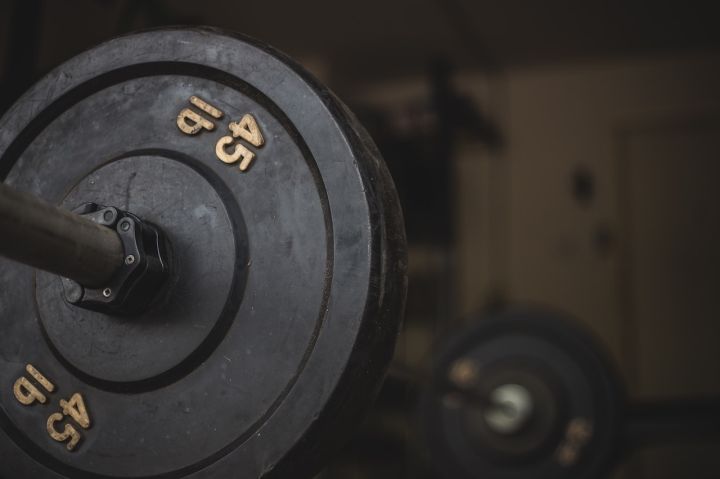Losing weight can be a challenge when you're over 40 years of age. But in reality it's far easier than you might think, and with some knowledge of nutrition, something like weight loss is always easy to achieve.

As people move into their 40s, there is a lot of growth in themselves, such as gaining wisdom, increased self-awareness and self-confidence.

But to be honest, adapting to some of the normal physiological changes can be difficult. The most important is the slowing down of the metabolism, which can make it more difficult to maintain weight and therefore to lose weight.

However, it is not impossible to lose weight after the age of 40. You can definitely lose weight at any age and optimise your overall health at the same time. Here are a few suggestions we have for all those over 40. One of them is to have a daily serving of dark chocolate! Isn't that, looking forward to it, please read on.

Reduce, but don't stop carbohydrate intake
Carbohydrates are fuel to be consumed from whole food sources such as fresh fruit, whole grains and potatoes, all of which contain vitamins, minerals, fibre and antioxidants. Skipping carbohydrates altogether will deprive your body of vital nutrients. This can lead to unwanted side effects such as constipation, fatigue and irritability.

However, after the age of 40, your daily carbohydrate needs may decrease. We have found that you cannot eat a lot of carbohydrates as you get older as this will cause you to gain weight and work harder to lose it. The best solution is to optimise the quality of the carbohydrates you eat (e.g. Choose natural pumpkin rather than on processed bread) and think of carbohydrates as a small add-on to a meal rather than the main ingredient.
For example, say a 40-year-old lady has a meal made of tortillas and rice, vegetables, beans, sauces and avocado salsa that looks healthy. Despite regular walks and yoga practice, there is no change in weight. The culprit: An excess of carbohydrates. The tortilla and rice contained 120 grams of carbohydrates, which was far more than even her body could burn in a single meal.
Then again, we calculated that in order to reach and maintain her healthy weight, she would need 1,750 calories a day. I find that a target of 40% of total calories from carbohydrates is ideal for most of my women over 40 and who are active, but not athletes. For her, this means 175 grams of carbohydrates per day, or about 40-45 grams of carbohydrates for each of her four meals per day. This modest carbohydrate budget does allow us to choose carbohydrate-rich foods, just in smaller portions, paired with more starch-free vegetables, lean protein and healthy fats.

When we swapped her tacos for a salad, the carbs dropped to 42g and the salad could be made with leafy greens, chorizo, beans and avocado. She still feels full, satisfied and energetic and will see a change on the scale. Carbohydrates themselves are not fattening, so you don't need to eliminate them completely. Not consuming carbohydrates at all is usually unsustainable and not the best choice for your health. The goal is to choose high quality carbohydrates and aim for a balance that is enough to satisfy, but not more than your body needs for fuel.
Eat more vegetables

Start with vegetables and then build a variety of dishes around them. I often recommend eating a whole bowl of non-starchy vegetables for breakfast and at least two bowls for lunch and dinner. At least five bowls of vegetables a day will provide valuable nutrients and also prevent disease. Also these vegetables will increase satiety and help regulate blood sugar and insulin levels and support healthy digestion, all of which contribute to sustainable weight management. To be clear, most people overestimate their vegetable intake, and according to one survey data, only 9% of adults consume the minimum recommended daily intake of vegetables. (note: The minimum amount is much less than recommended above)
For breakfast, include plenty of green vegetables, toss sliced courgettes into oatmeal, add vegetables to scrambled eggs, or eat only vegetables, such as sliced cucumber. Instead of fast food or takeaway for lunch, have a bowl of vegetable salad with plenty of greens in it. For dinner, fry, roast, or stir-fry your vegetables so that they are the main component of the meal.
Once again, pair your vegetables with lean protein, good fats and a small amount of healthy carbohydrates and you've created an ideal balance for weight management and good nutrition.
Beware of alcohol

There are many many people over the age of 40 who do not notice a change in their weight until after they have reduced or stopped drinking alcohol. Research suggests that alcohol is an issue to take seriously, as moderate drinking may help with weight control. However, those who drink excessively or heavily are at a higher risk of developing obesity.
Moderate drinking means drinking a small glass of wine a day, equivalent to 140ml of wine, 340ml of beer or 42ml of white wine.
If you are drinking half a bottle of wine most nights, there may be several problems with this.
Firstly, alcohol lowers inhibitions and stimulates appetite, so you may eat more, often unconsciously.
In addition, when alcohol is consumed, breaking it down becomes a priority for the body. This means that foods containing alcohol are less likely to be burned.
Finally, excess alcohol can disrupt sleep, and a healthy sleep cycle is directly linked to metabolism, weight management and belly fat accumulation.
If giving up alcohol completely is unrealistic, consider adopting a specific drinking strategy. Taper down, drink only on weekends or limit your drinking to a maximum of one drink a day. This is important.
Don't eat diet food (or go on a diet)

Many of my friends in their 40s are still clinging to outdated ideas about dieting. One is to consume diet foods, i.e. Those highly processed foods that are low in calories, carbohydrates, sugar and fat, processed with artificial chemicals. We recommend removing these foods from your diet completely! Apart from their unsatisfactory results, diet foods can seriously damage your appetite, trigger inflammation, alter the beneficial flora in your gut associated with weight management and overload your immune system.
Some studies have also shown that switching from processed foods to natural foods increases calorie burning, meaning that eating real, natural foods can help you lose weight even if you don't reduce your calorie intake (a result i've seen many times before). Choose hearty, homemade healthy meals and healthy salads over low-calorie 'frozen meals'. Replace a few low-fat biscuits with apple slices dipped in almond butter or a few high-quality dark chocolates for a better option.

Another healthy, sustainable way to lose weight is not to diet. Depriving yourself of a normal diet is ultimately counterproductive. Instead, adopt a balanced mindset of not eating less or eating more and focusing on nutrition rather than restriction. This may seem boring and is not a quick fix. But it feels best both physically and emotionally, and this approach is sustainable for longer.
Eat dark chocolate every day

A study supports this recommendation of ours, and there are plenty of tried and tested peeps who can attest to it: Eating more dark chocolate every day helps to curb cravings for sweet and salty foods. Dark chocolate can also help reduce stress, a major factor in triggering emotional eating. Studies have found that eating 25-30 grams of dark chocolate a day for a fortnight can lower stress hormone levels in those who are very stressed.
Five bars of 70% dark chocolate contain less than 250 calories but provide antioxidants, fibre and magnesium, a mineral associated with relaxation, improved sleep and better mood.
Now isn't that a chocolate meal to look forward to, which helps us forget about the higher calorie, higher carbohydrate treats. Spread this 25-30 grams of dark chocolate throughout the day or enjoy it all at once as part of a daily 'self-reward' ritual.

I believe you can be in better shape at 40.





